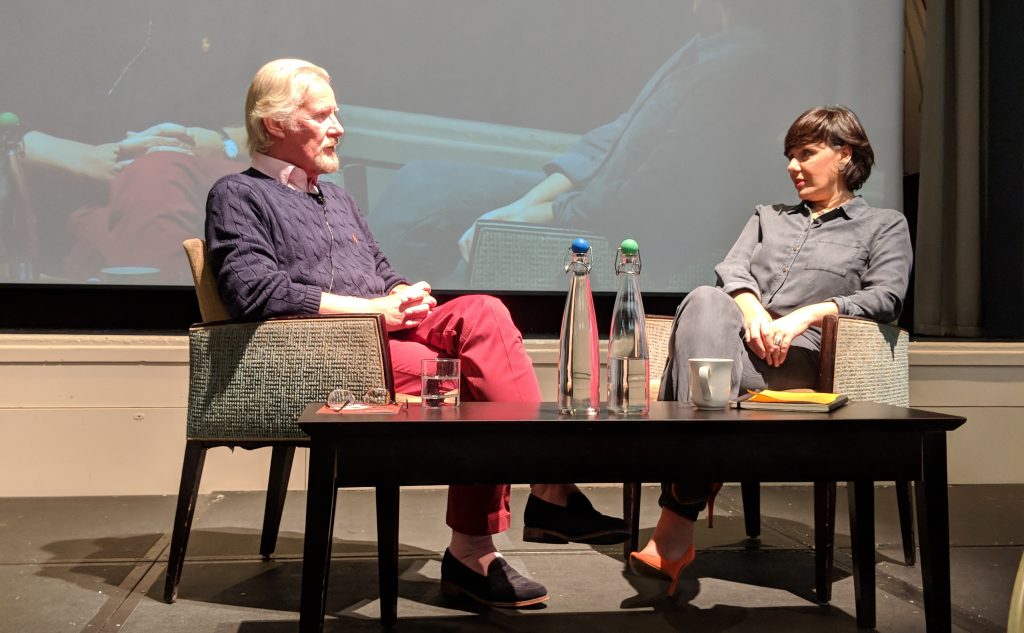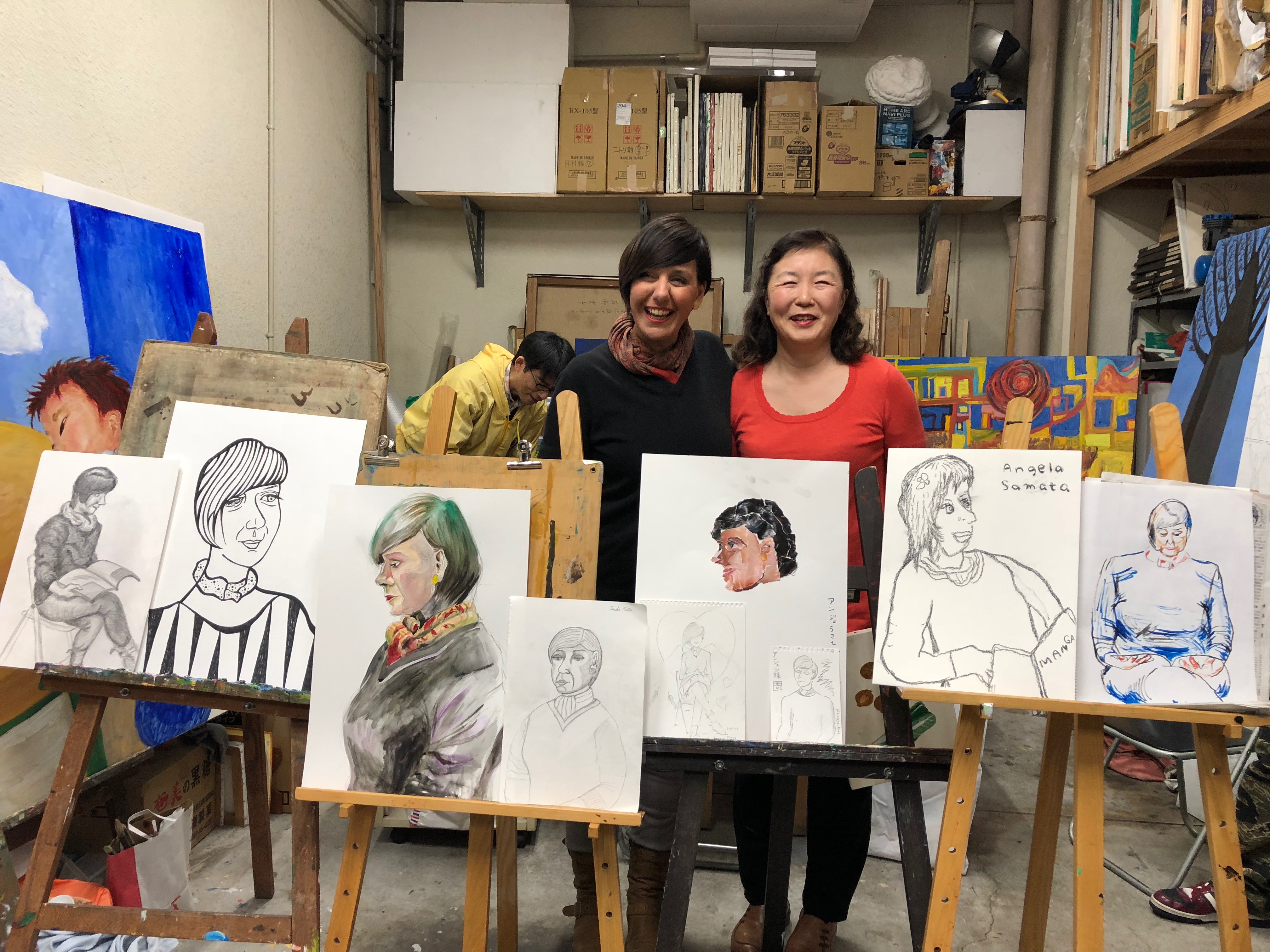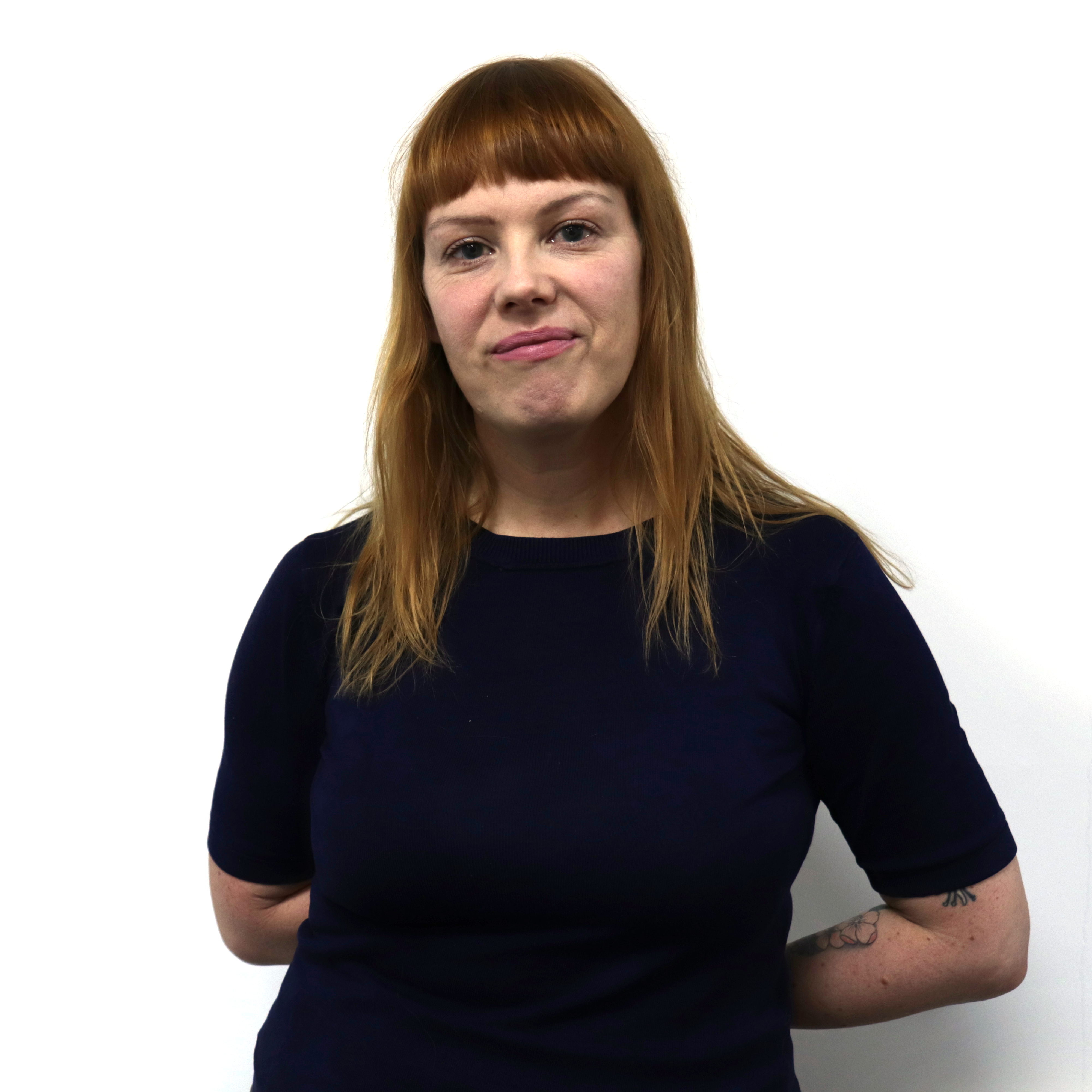I first met Angela Samata during one of the many John Moores painting prize events in Liverpool I’ve attended, but I only realised the breadth of her incredible work on suicide prevention after watching her present the BBC One documentary ‘Life After Suicide’.
Nominated for a BAFTA and winner of a Mind Media Award, the programme showed Angela describing her own experience, and that of her children, after her partner took his own life 15 years ago. She travelled the length of the UK, talking to others who had experienced the same loss.
While the film encouraged discussion, it was the astonishing empathy shown for everyone featured that made it so special. The feeling that Angela was attempting to care for, not just the film crew and people being interviewed, but the audience at home too, made it resonate so specifically with me.
Her kindness and frankness around her own experience made the programme into an incredible exploration of mental health issues, challenging the stigma of suicide. The documentary was aired as part of the BBC’s Mental Health Season #InTheMind and was watched by more than 4.5 million viewers worldwide.
In 2016, she was named the Merseyside Woman of the Year and given an honorary fellowship by Liverpool John Moores University. This well-deserved recognition followed her work on the documentary and co-authoring the NHS70’s award-winning #SeeSaySignpost training, to help us all play a more effective role in suicide prevention.
__________________________________________________________________________________

A still from Angela Samata’s ‘Life After Suicide’. Image Credit: BBC 2018
What did you want to do or be as a child?
I always wanted to be an air hostess because I thought it was the most glamorous and amazing job in the world. Anyone who could make a cup of tea at thousands of feet in the air was amazing in my book! But I think I always saw myself in a position where I would be helping people.
What does ambition mean to you?
Together with a colleague Jane Boland, we wrote a piece of training that’s free to everybody globally and takes 20 minutes. This is about the ambition to train everybody: hairdressers, taxi drivers, barbers, everybody we tell our secrets to, to be able to have a conversation with someone who may be experiencing a suicidal crisis. To think that you can release this clinical challenge and make it palatable and accessible to the general public is ambitious. I would like everybody in the world to be trained. But 20,000 people have done the training so far.
This about the ambition to train everybody: hairdressers, taxi drivers, barbers, everybody we tell our secrets to.
Angela Samata
What does freedom mean to you?
Freedom to me is knowledge. In my professional career, what I’ve tried to be part of is making the knowledge that’s kept in institutions or kept with professionals or commissions known about. You know, that old saying that knowledge is power is absolutely true and fundamental to where we’re at.
Describe a time when you’ve experienced some kind of discrimination.
Do you know something, I can’t. I think discrimination is so dangerous because you sometimes don’t know if it is happening. So I’ve got no idea if someone has read my name and thought “oh she doesn’t sound British enough. Maybe we won’t ask her to do that”.
I’ve got no idea if anybody has discriminated against me because I’m a woman. I’ve got no idea. What I do know is I’ve never felt discriminated against, and I think that puts me in an extremely privileged position to never be able to think of a time when I know I have been discriminated against. It was quite a shock actually. I’m not sure how that makes me feel.

David Robb aka Downton Abbey’s Dr. Clarkson continuing the conversation Angela started during the Life After Suicide documentary
Which human right do you value the most?
I think for me it is freedom of speech. It is so fundamental to everything that I do. In 2003, my partner very, very unexpectedly took his life, and there were no warning signs. He didn’t tell anybody how he felt, and I didn’t know that I was not only going to be the last person to speak to him, but I was also going to be the person who found him 15 minutes after I’d spoken to him.
For the last 15 years, I have been able to speak openly about that experience and the effect that it’s had on me and my children and the wider community and also what we can do about it. So that type of freedom of speech and that type of freedom of expression– the freedom to own your own lived experiences is a remarkable thing and something I never take for granted.
To be able to stand in a country that says “please try to avoid the words ‘committing suicide’, or ‘committed suicide’, because actually it’s not a crime anymore in this country”, but in other places in the world it’s still a crime. To have the freedom to try and ask people to change their language because it has implications for people like me is remarkable.
I know that the only thing I can do right now is use my voice in the privileged position I am in, but only until other people find theirs.
Angela Samata
Do you ever ‘check your privilege’?
I constantly check my privilege. I was in 10 Downing Street [when Theresa May appointed a Suicide Prevention Minister], I have been invited to Kensington Palace, I have been invited to Buckingham Palace, and I go into Parliament, as I’ve been sitting on a parliamentary committee for suicide prevention for the last eight years.
That gives me privilege, that means I can use my voice and the voice of others who have had lived experiences that they want the government to know about. I know that the only thing I can do right now is use my voice in the privileged position I am in, but only until other people find theirs.

Angela on a panel earlier this month. Image Credit: Sean Dillow
Nature or nurture?
Both. I have to believe in both. Because their father took his life, I have to really choke down the tears sometimes because I have to watch people talk about data that shows that my children and other people affected by suicide will be in the highest risk group.
I have to sit there knowing that because they are boys it puts them in a high-risk group. They are under 50 which puts them in a high-risk group. Their father took his own life, which puts them in another high-risk group, and I have to believe that nurture can override nature because, otherwise, the future is too bleak.
What’s a lesson you learned the hard way?
For me, the biggest lesson I’ve learned the hard way is that the sisterhood doesn’t exist. There is no automatic mechanism which means just because you identify as a woman and you walked into a room where the person sitting across the desk from you identifies as a woman, [they are] going to give you any kind of assistance because of the sisterhood.
I didn’t realise how much it hurts when the person to let you down is a woman, because you have this crazy expectation that all women are going to help you.
Angela Samata
I didn’t realise how much it hurts when the person to let you down is a woman, because you have this crazy expectation that all the women are going to help you. And, I think that when I said that at a conference recently there were gasps in the audience and what I meant was that the sisterhood doesn’t automatically exist. But you can create it.
When I have decisions to make, like whether to accept the invitation to Downing Street, or whether to accept different invitations to go to different places, I have a group of women around me I know I can call on and whose opinion I listen to and appreciate and they are my sisterhood.
What makes you frustrated?
In 2018, a baby born in Kensington in Liverpool still has a life expectancy ten years lower than a child born in Kensington in London. And while that is still a fact, we’ve still got so much work to do.
And I think working in the mental health world, as I’ve done for the last 15 years, I am constantly astounded by the health inequalities that I witness. And how access to decent mental health care often is dependent on your postcode, or your ethnicity or how you identify.
What is your secret talent?
Not many people know this, but I can fire breathe. Circus Ange.

Photo of Angela Samata’s trip to Japan on her Winston Churchill bursary to research outsider art. Image Credit: Angela Samata 2018
Best ever memory?
I think some of my best memories have been from the last year I went on a Churchill scholarship, I wrestled with accepting money in the name of Winston Churchill but, actually, I created some amazing memories.
I was in New York on my own for three weeks which was just incredible. Before that, the longest time I’d spent on my own was probably about 20 minutes. And then going to Japan and working with individual artists in Japan, as I was looking at outsider art, was just amazing. Those memories I hope will never fade.
What does dignity in dying mean for you?
We have birth plans, and we encourage people to think about how their baby is born, when their baby is born and where and how. The music you might have on, the painkillers you might have access to.
I think I’m trying to change the world by allowing people to talk about their experiences, whether that’s in the art world or the mental health world.
Angela Samata
What we feel less comfortable with is that type of planning towards the end of our lives. It’s something that is a debate which definitely needs to be continued. You wouldn’t think in 2018 in the UK that you would have to give birth without a midwife being there, so why do we think we should have less care when our life is ended?
How are you trying to change the world?
I am very very lucky, I am surrounded by amazing people, I have the great privilege of talking to amazing people most days. I think I’m trying to change the world by allowing those people to talk about their experiences, whether that’s in the art world or mental health world.
The suicide prevention training that Angela Samata co-wrote takes twenty minutes of your life and could save someone else’s. If you’re struggling and support, you can contact the Samaritans or Mind.







